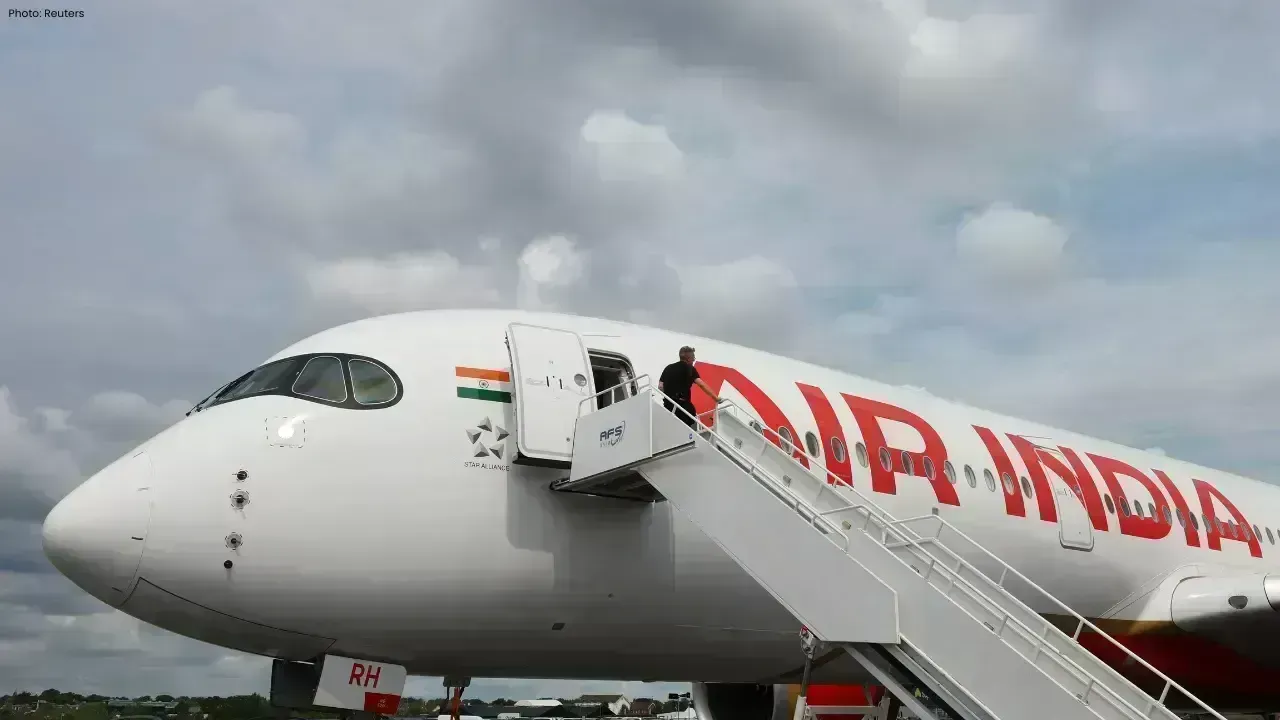You have not yet added any article to your bookmarks!

Join 10k+ people to get notified about new posts, news and tips.
Do not worry we don't spam!

Post by : Anis Farhan
As travelers navigate through busy airports and trains, their bodies face new environments and routines, increasing the vulnerability to colds and seasonal flu. The mix of strangers from various regions amplifies the risk, especially in confined areas where viruses can spread rapidly.
In our modern world, travel is a necessity for work, family, and leisure. However, falling ill while away can disrupt plans. Fortunately, simple, mindful habits can provide essential protection.
This article delivers easy-to-follow advice to keep you healthy as you travel, steering clear of stress or overcomplicated routines.
Viruses thrive in crowded situations, and travel intensifies these factors due to:
crowded spaces
poor airflow
temperature fluctuations
exhaustion
insufficient hydration
frequent contact with surfaces
shared amenities
Airports and public transport hubs create environments ideal for germs, where even healthy individuals can become susceptible due to changes in routine.
Awareness allows travelers to implement smarter safety measures.
Preparation is vital for staying healthy. Strengthening your body before a trip helps cope with travel stress and exposure.
Some useful pre-trip habits to adopt include:
consistent sleep
balanced diet
hydration
gentle exercise
regular sun exposure
Just a week of improved sleep and nutrition can enhance your body’s defenses. Incorporating more fruits and vegetables while cutting down on sugar can bolster immunity naturally.
Many individuals underestimate the impact of fatigue on immunity. Rushing into a trip after late packing or an exhausting day diminishes your body’s defenses against viruses.
Having a health kit handy during flu and cold seasons can assist in managing symptoms early, preventing minor issues from escalating.
Basic essentials may include:
hand wipes
pocket tissues
face masks
lozenges
a small thermometer
saline nasal spray
warm socks
OTC medications
electrolytes
a small sanitizer bottle
These lightweight items can be of great utility in bustling airports and other crowded settings.
Travel can lead to dehydration due to long flights and overly dry environments, making it essential to drink enough fluids. Keeping the throat moist helps enhance natural defenses.
A refillable water bottle can aid in maintaining proper hydration.
Avoiding touching your face is a simple yet effective way to prevent virus entry through the eyes, nose, and mouth. Surfaces can harbor many germs, often without our knowledge.
While mask mandates have eased in many regions, their use during flu season can significantly reduce transmission in areas like:
airplanes
crowded public transport
busy terminal gates
indoor attractions
public restrooms
Wearing a mask in tightly packed environments mitigates risk without instilling fear.
Whether seated in a plane, hotel room, or waiting lounge, adequate airflow is crucial. Whenever possible,
opt for seats with air circulation
open windows in vehicles
avoid stagnant corners
fresh air in hotel rooms
Good airflow can diminish virus concentration in enclosed spaces.
Although maintaining distance in crowds can be challenging, even small adjustments such as
standing a bit further in lines
selecting quieter boarding zones
avoiding crowded elevators
can enhance your defense.
Hand hygiene is a powerful tool against illness. Regularly washing your hands with soap or utilizing sanitizer, particularly after touching high-contact surfaces, significantly lowers infection risk.
Common touchpoints include:
airplane tray tables
seat belt buckles
security bins
elevator buttons
hotel remotes
door handles
menus at restaurants
Consistent sanitization after contact with these surfaces is a vital practice.
Many overlook the importance of staying warm while traveling, as sudden cold exposure at the airport or on flights can trigger illness.
Packing layers like warm wraps or jackets can keep you comfortable and prevent chills.
Cold drinks during flights can irritate the throat, made worse by dry air. Opting for warm or room temperature drinks is gentler.
Long gaps between meals can sap energy and weaken immunity. Carrying healthy snacks like nuts or fruits can help maintain stability while traveling.
Steering clear of excessive sugar also aids in building immunity.
While overhead vents can enhance ventilation, directing cold air straight at you might dry the skin. Adjusting the vent slightly away from your face offers a better shield.
Moving about aids circulation, enhances energy levels, and bolsters immune functions. During long flights or train rides, travelers should
take brief walks
stretch legs
roll shoulders
adjust sitting position
These movements foster wellbeing.
Stress can weaken your immune response, making you more susceptible to illnesses. Finding ways to cope with travel-related stress—whether from tight schedules or unexpected delays—can protect your health.
Hotels are breeding grounds for germs. Wiping down commonly used surfaces enhances cleanliness.
Focus on surfaces like:
remote controls
light switches
doorknobs
bathroom counters
kettle handles
also remember to set aside bedspreads.
Dining spaces can be hotspots during flu season. Opt for:
outside seating
less crowded tables
distance from busy areas
to mitigate exposure.
Many visitors overlook hydration upon reaching their destination, which can lead to illness. Staying hydrated alleviates symptoms from dry air and long journeys.
Outdoor attractions and nature spots offer a safer atmosphere compared to crowded indoor venues, allowing travelers to enjoy exploring without the risks of illness.
Adapting to new climates is crucial. Wearing suitable clothing from day one helps your body adjust to temperature changes smoothly.
Dry air can contribute to throat and nasal discomfort. Utilizing saline spray aids in moisture retention, especially during flights.
Sharing drinks, utensils, and towels can escalate transmission risks. Avoid communal items to safeguard your health when traveling.
Paying attention to early signs of illness allows early intervention. Symptoms like fatigue, a scratchy throat, or mild headaches should be addressed promptly.
Preparation helps manage illness if it occurs. Have a stock of necessities on hand, know local healthcare facilities, and allocate rest periods in your itinerary.
Traveling during flu season can be enjoyable with the right preparations and hygiene practices. It’s about awareness and making conscious choices to protect your health.
In the end, smarter decisions lead to healthier, happier journeys.
This article is intended for informational and lifestyle purposes only. It does not substitute professional medical advice. Travelers with health conditions should consult a healthcare provider.










Air India Airbus A350 Engine Damaged by Cargo Container in Delhi Incident
An Air India A350’s engine sucked in a cargo container while taxiing in Delhi, grounding the flight.

Pakistan Expands Arms Influence, Eyes Islamic NATO in Arab World
Pakistan strengthens military ties in the Arab world, negotiating arms deals and a trilateral Islami

Harvard Drops to Third in Global Science Ranking, China Leads Again
Harvard University falls to third in the CWTS Leiden 2025 Science ranking, while Chinese universitie

Canada, China Open New Chapter With Strategic Partnership Talks
Canada and China begin rebuilding relations as Prime Minister Mark Carney meets President Xi Jinping

Batangas Court Orders Arrest of Atong Ang in Missing Sabungeros Case
A Batangas court has ordered the arrest of tycoon Atong Ang and others over the disappearance of sab

China Gives $2.8M Aid to Thailand After Fatal High-Speed Rail Accident
China provides 20 million yuan in cash and relief supplies to Thailand after the deadly crane collap